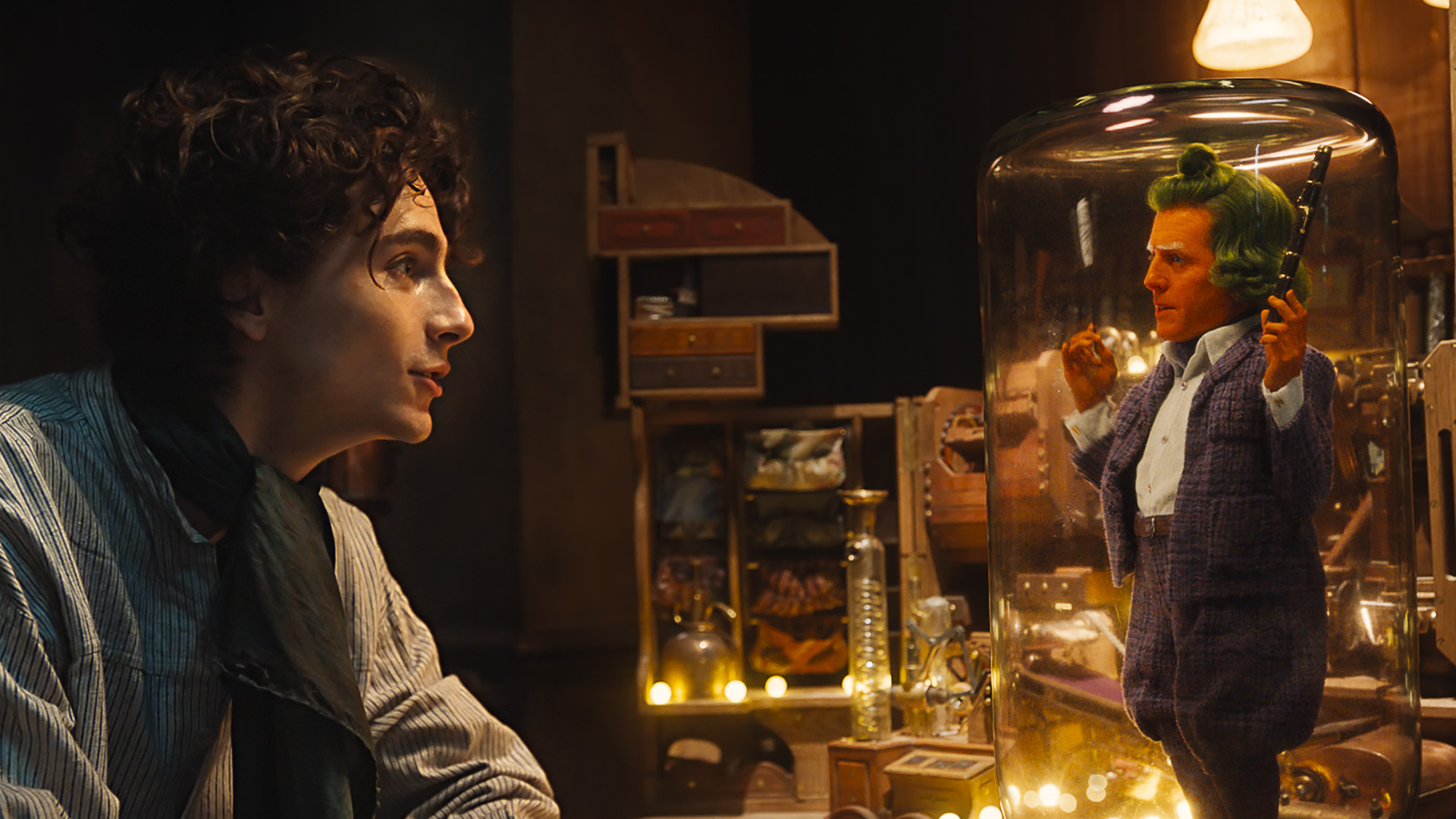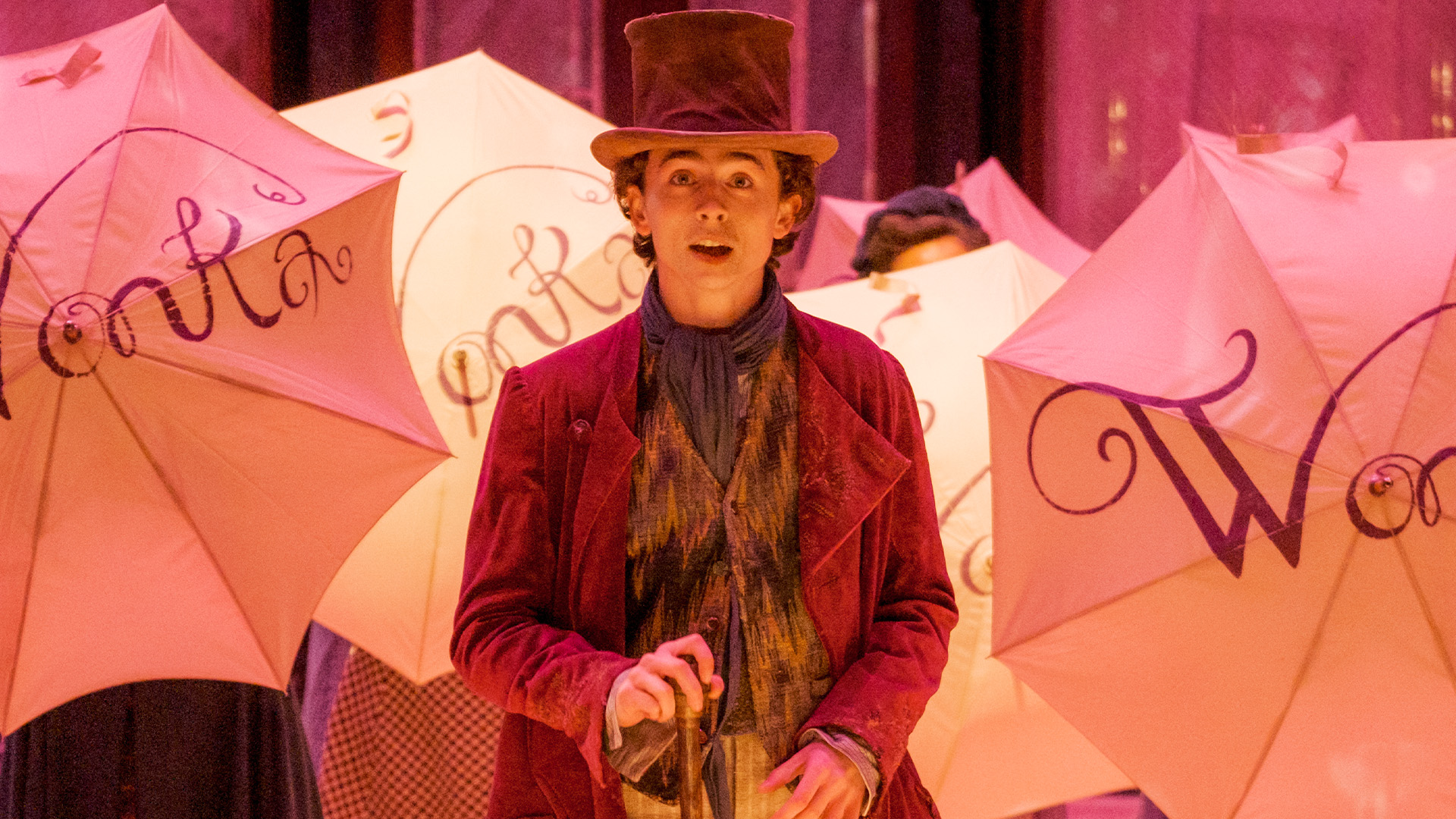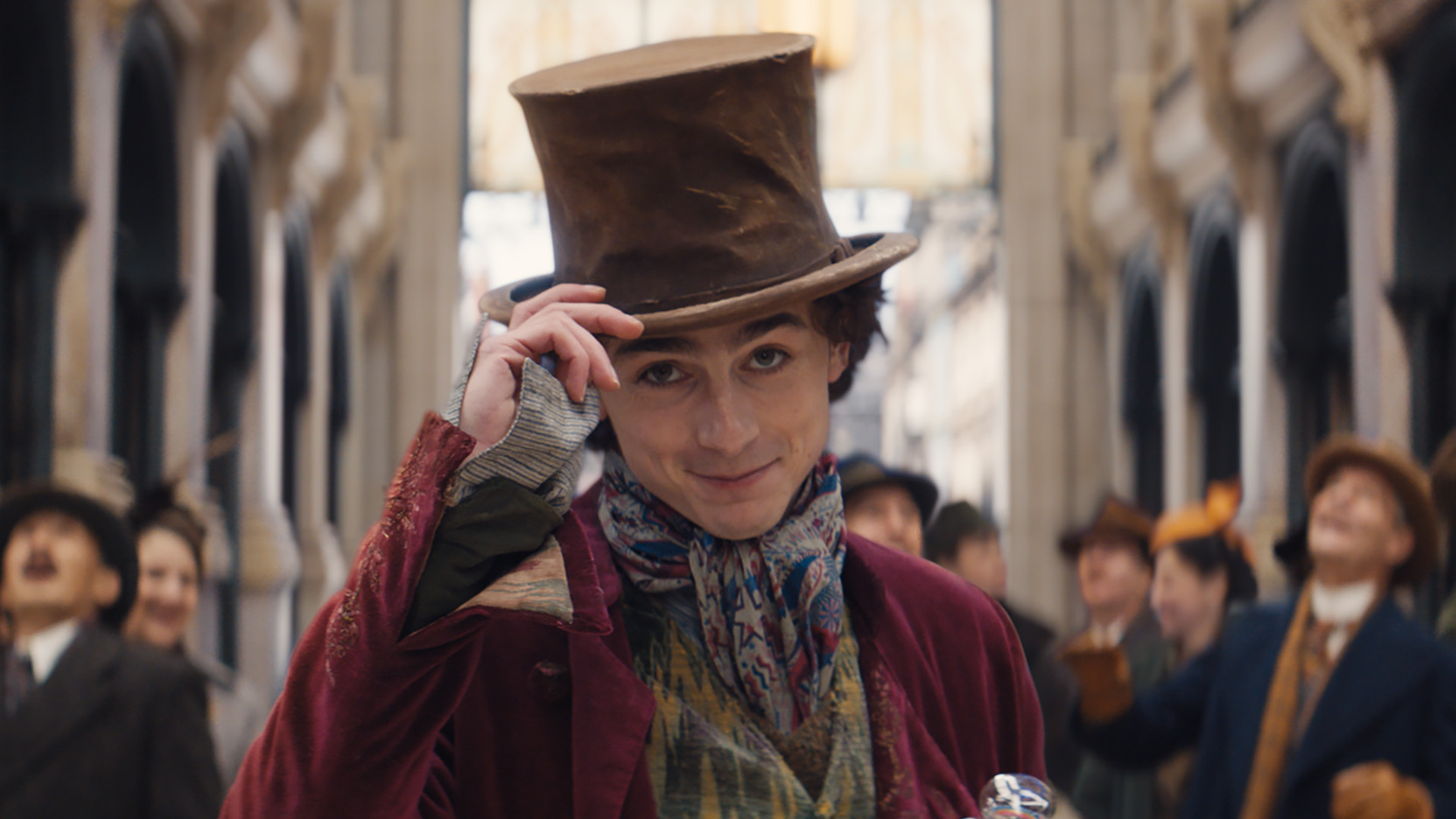Wonka sands away the bite of Roald Dahl’s satire and replaces it with sentiment
Wonka is a harmless, often delightful treat, but does it not also feel like corporate revisionism?

The origin story of Roald Dahl’s Willy Wonka is told by director Paul King in Wonka. It’s a harmless, often delightful treat, observes Rory Doherty – but he also wonders if it feels like corporate revisionism.
Before we get into Wonka, the musical prequel about fantastical chocolatier Willy Wonka that’s also Paul King’s follow-up to Paddington 2, we must set some ground rules. During Willy’s initial adventures in a nebulously 20th century London, you will be tempted to perform political analysis on the enterprises and labour practices we see involved. Why are people’s wages substituted with chocolate instead of money? Why does the film include marginalised people trapped in indentured servitude? What about the post-colonial overtones of Wonka’s relationship with Oompa Loompas?
I must beg you, if you want to stay sane, do not go down this road. Not because these aren’t legitimate questions that bafflingly arise from a Christmas family musical, but because there is no way to navigate them without going a little insane, as you constantly remind yourself you’re arguing with a Willy Wonka prequel.
If you can suppress your class-conscious queries about Wonkanian ethics, Wonka is a perfectly pleasant adventure. The songs (yes, it’s a musical) err on the side of forgettable, but those that stand out for being properly stirring get extra credit for not taking inspiration from the ultra-poppy and utterly empty Greatest Showman school of movie musicals.
After initial concerns that he would be able to pull off the challenging role, Timothée Chalamet proves a delight in the part of a young Wonka, sparkling with a naive but charming American entrepreneurial spirit amongst the grim, Victorian-fused fantasia of London hungry for brightness and sugary affirmation. His competition is a confederation of confectionaire plutocrats, chocolate makers who close ranks against any exciting, novel newcomers. (Paterson Joseph as Slugworth is the only one worth commending; Mathew Baynton is there for the Horrible Histories crowd and Matt Lucas is there to annoy us.)
The menace of the “Chocolate Cartel” is felt, and their manipulative schemes all play with a devilishly cruel energy, but we spend far too much time watching them plot and none of them, well, trying to sell chocolate. We don’t understand, beyond what we’re directly told, why these men hold such a stranglehold on London’s chocolate market—we never even see them producing or selling any.

What’s more, Wonka could do a lot more of Wonka’s chocolate-making process. His marketing and salesmanship prowess have show-stopping songs dedicated to them, tapping into a classic Hollywood musical energy that should be present throughout the two hour runtime—which is sorely lacking from a clumsy climax. Too often we’re asked to simply gawk at Wonka’s creations—but two films and a book exist that offer these very same pleasures.
Obviously, you don’t want to ruin the mystery behind Wonka’s talent by trying to explain how he makes his magic. In the original book/films, the fact that touring Wonka’s factory only further obfuscates his genius was the point, and it works in all three versions of the story because it’s grounded in Charlie Bucket’s perspective.
Wonka was always accessed externally, from a distance, which made his mischievous demeanour all the more fascinating. There was mystery to him, and by placing Wonka inside an effective but simplistic story about proving himself and expressing love through his art, it feels like we’re being hand-held through his all-too-simple world. Everything about the character is clearly spelt out for us, but by the end of the film, it feels like we actually understand him less.

There’s another side-effect to focusing on a simpler, bright-eyed and bushy-tailed Willy Wonka—and it’s got something to do with that ghoulish MCU-style ident for “The Roald Dahl Story Company” that plays at the beginning. Wonka, feeling more indebted to Gene Wilder’s interpretation of the character than Johnny Depp’s (although both are very much in there), sands away the bite of Dahl’s satire and replaces it with sentiment. It’s not without reason—this is a fairly robust family Christmas film!—and it suits a younger interpretation of the character to have Wonka’s older melancholy substituted for optimism.
But Wonka centring a younger, heartfelt and kinder version of the character also handily excuses them from showing all the bitter cynicism and jaggedness that made his role in Chocolate Factory so compelling—and therefore, not brand friendly. Wonka is not Wonka because he runs a chocolate factory; he’s Wonka because he wants to be horrible to children. The man resents his own customers, and needs to meet Charlie Bucket to love them again.
Wonka is a harmless, often delightful treat, but does it not also feel like corporate revisionism? This character was defined by turning cold on the one thing he loves most, because of industry, the same forces that are now making a cinematic universe out of his creator. As much as Wonka tries to convince us, the key element to his character is not that he loves chocolate, it’s that he fell out of love with it. Seeing a youthful inventor be head over heels in love for his invention makes for a film much like a choccy easter egg: satisfying, but hollow in design, and easily breakable.
























